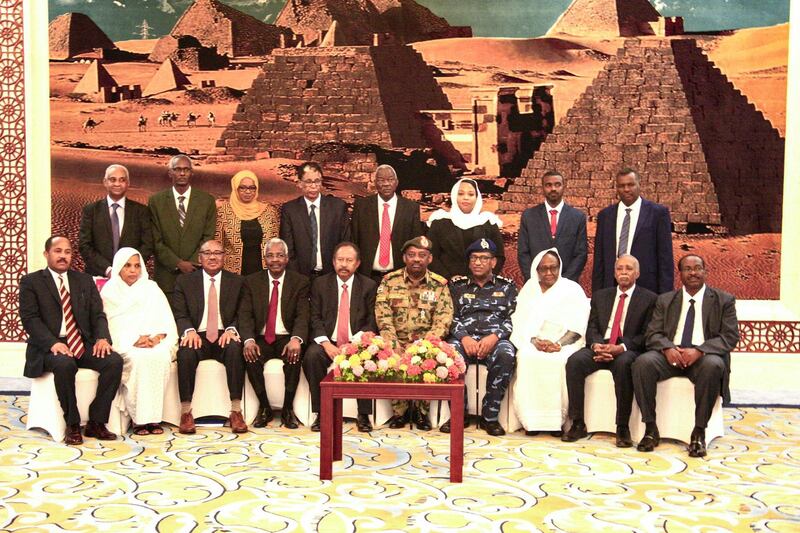Sudan's Cabinet voted on Tuesday to repeal a 1958 law mandating a boycott of Israel. It is the latest step Khartoum has taken towards establishing ties with Israel.
Last October, Sudan and Israel agreed to normalise relations in an accord sponsored by the US.
That came after accords were signed by the UAE, Bahrain and Israel in August last year.
The latest move by the Sudanese government removes one more obstacle, albeit largely academic, on the path to establishing full relations with Israel. The countries have already exchanged high-level visits.
The bill must still be presented to the country's ruling Sovereign Council for final approval before it is passed into law.
This process is likely to be a formality because as the council supported the drive to normalise ties with Israel.
"This is an important and necessary step towards the signing of a peace accord between the countries," Israeli Intelligence Minister Eli Cohen said.
Sudan also opened its airspace to civilian Israeli aircraft and the two countries have been exploring ways to upgrade Sudan's military industries, as well as agricultural and industrial co-operation.
On Tuesday, Sudan reaffirmed its support for the Palestinian cause.
Sudan said it remained “committed to the principle of establishing a Palestinian state in the framework of a two-state solution".
The 1958 law prohibited diplomatic and business relations with Israel, while it also imposed a blanket ban on interacting withIsraeli artists, athletes or writers.
Some parts of Hollywood movies that made a direct mention of Jews or Israel were removed by censors.
Sudanese troops fought alongside Egyptian forces against Israel during the 1948 Arab-Israeli War.
Sudan also housed Egyptian fighters jets to protect them from Israeli air strikes after the Arab-Israeli conflict in 1967.
After the conflict, Arab leaders met in Khartoum where they agreed on the terms that shaped Arab-Israeli relations for years: no peace with Israel, no recognition of Israel and no negotiations with Israel.
More recently, Israel launched air strikes on Sudan to hit suspected smuggling routes that it was claimed were used to send arms to Hamas in the Gaza Strip.
After Khartoum signed the accord to normalise ties with Israel, the US removed Sudan from the list of states that sponsor terrorism.
That allowed Sudan to again receive financial assistance and investment.








